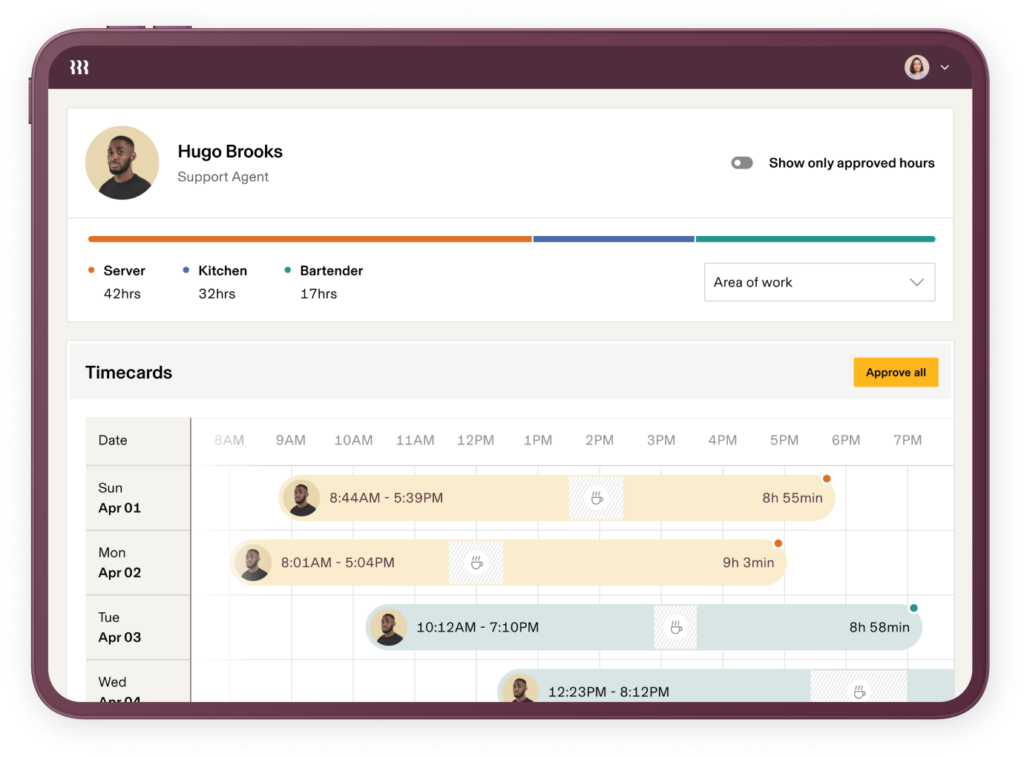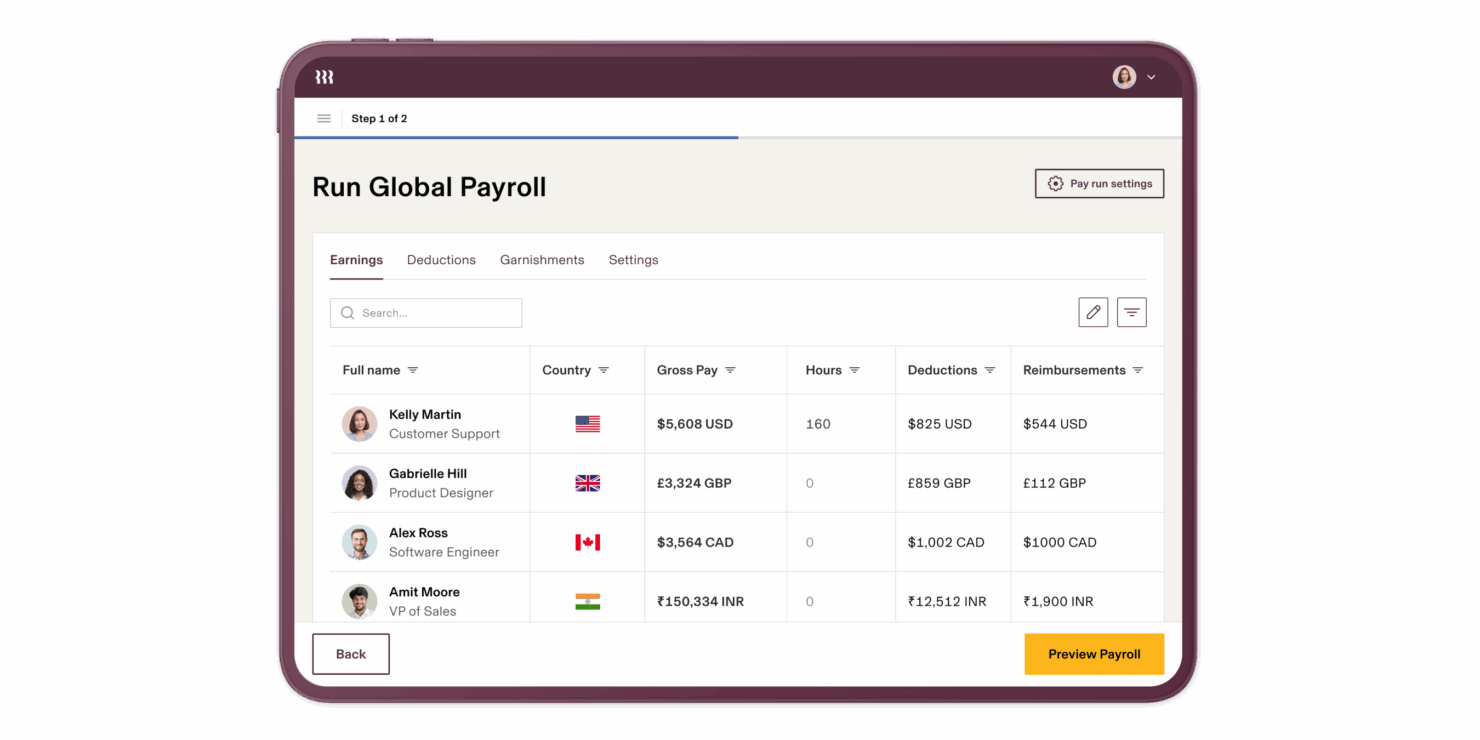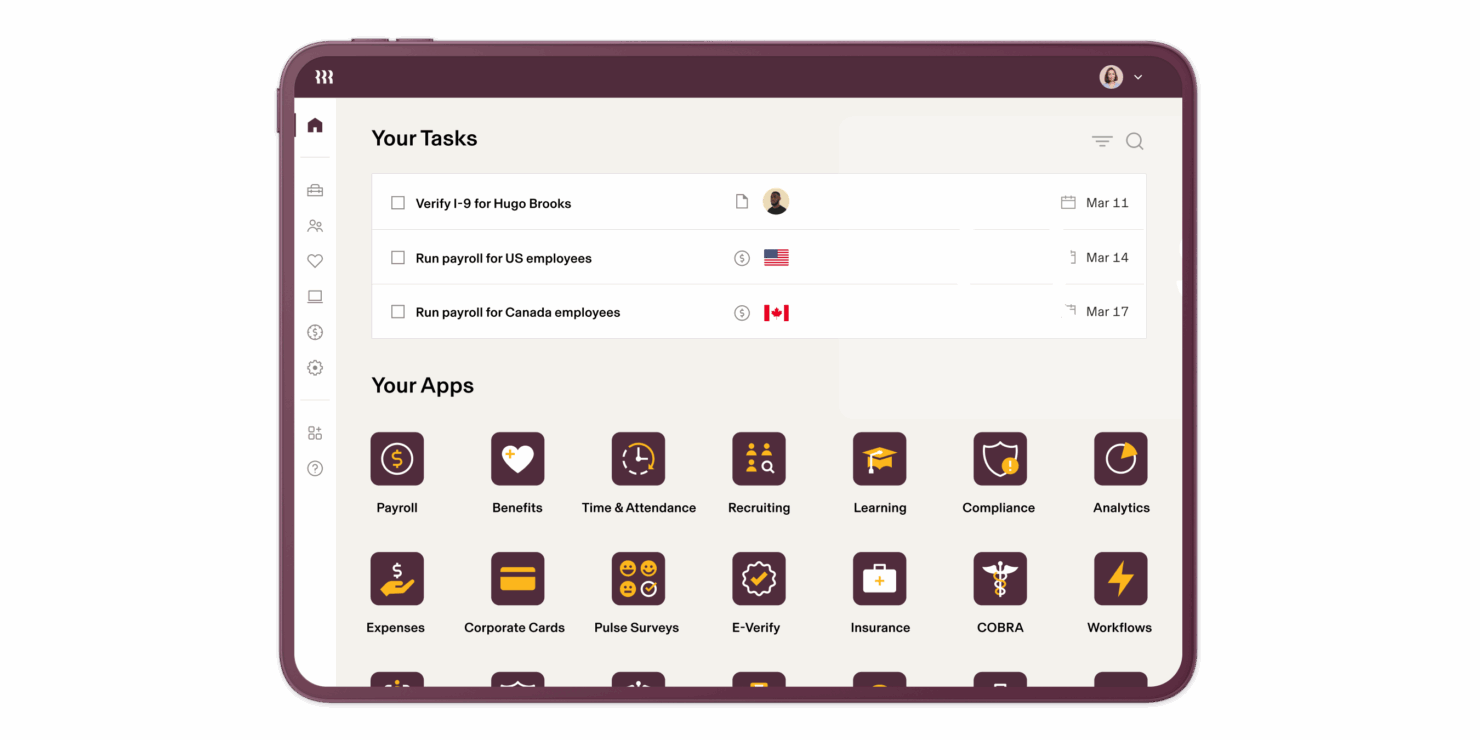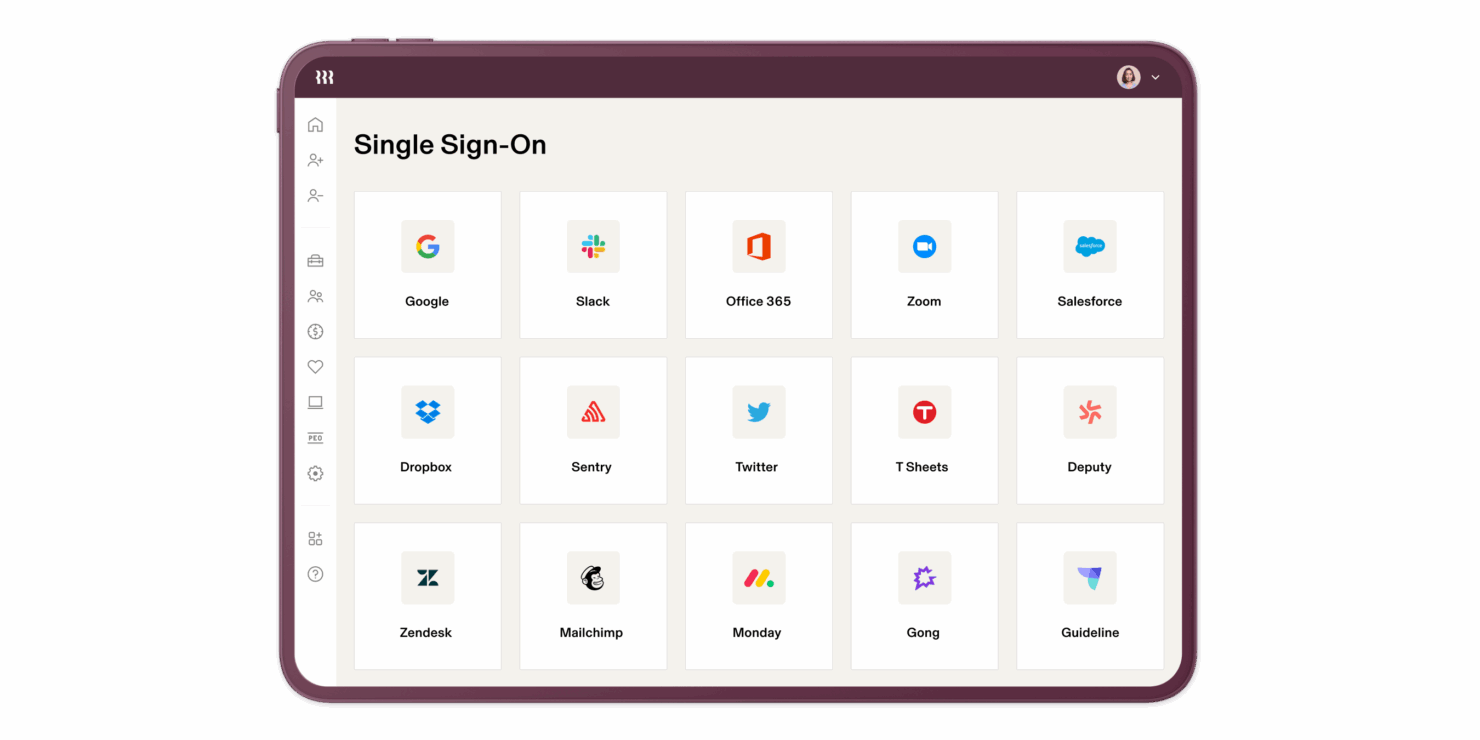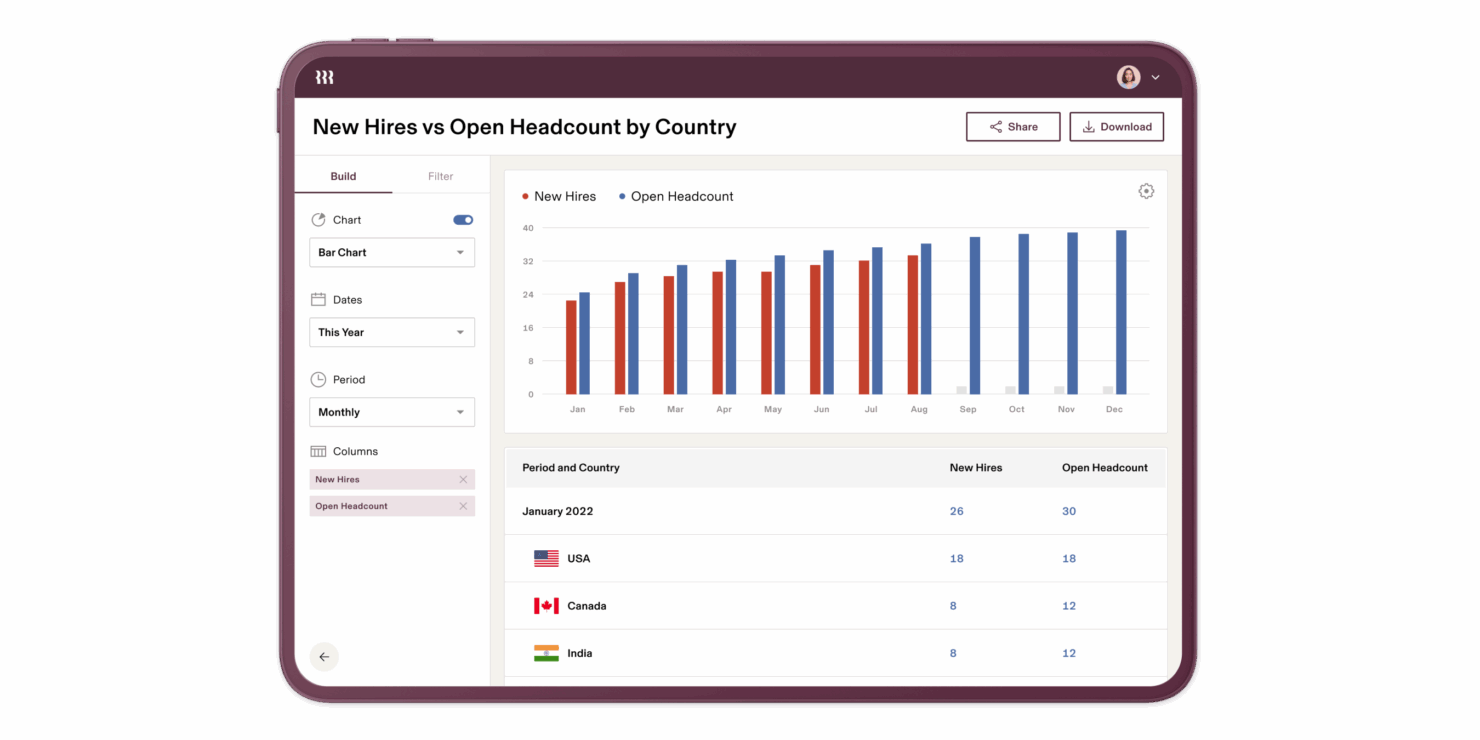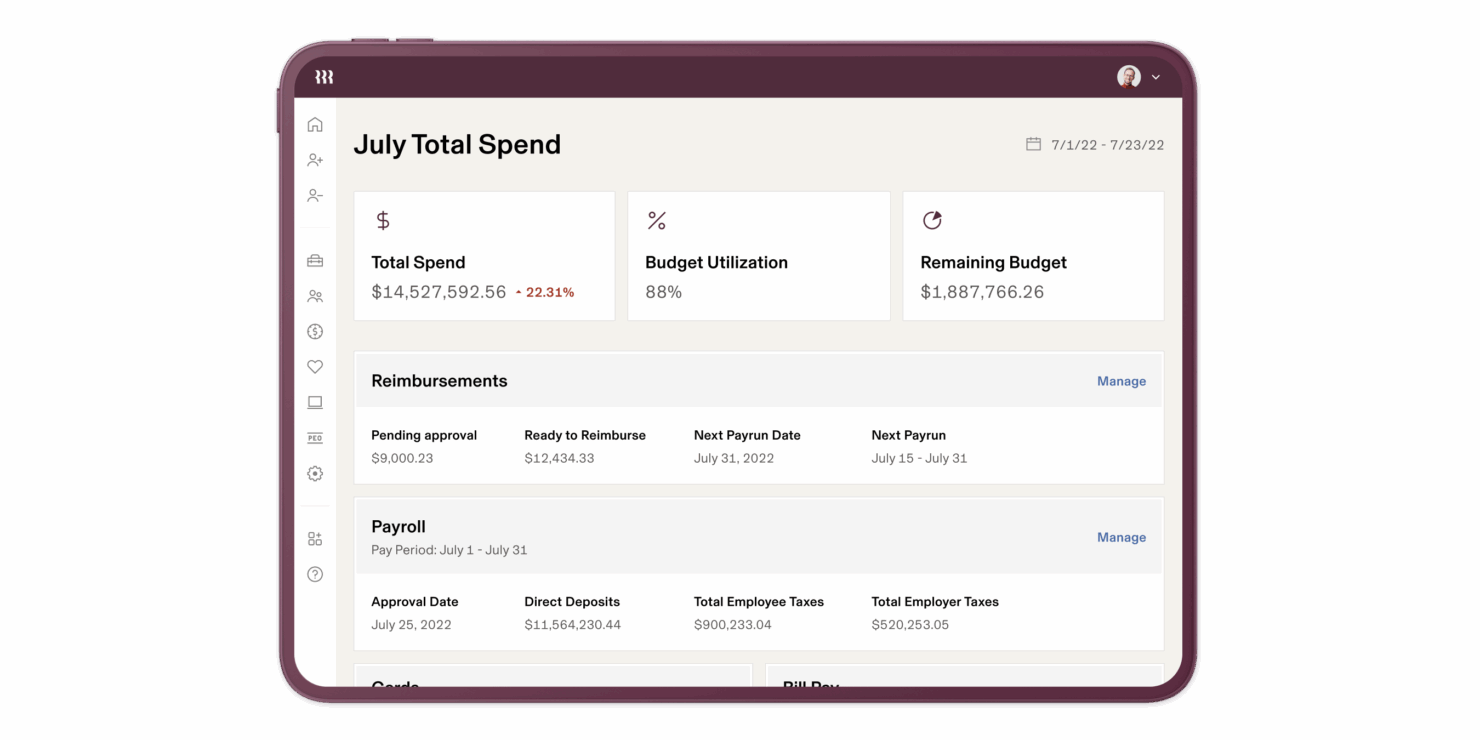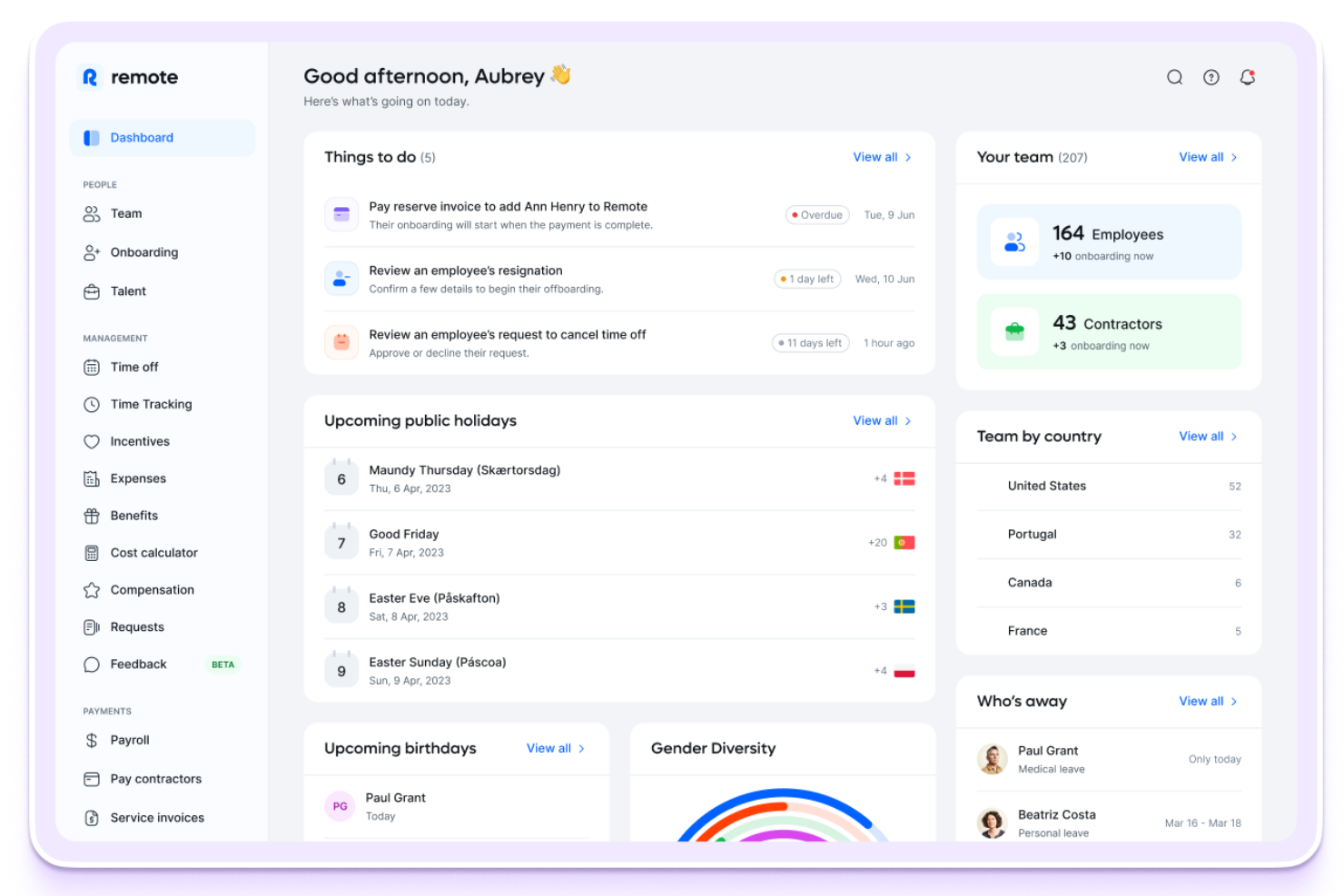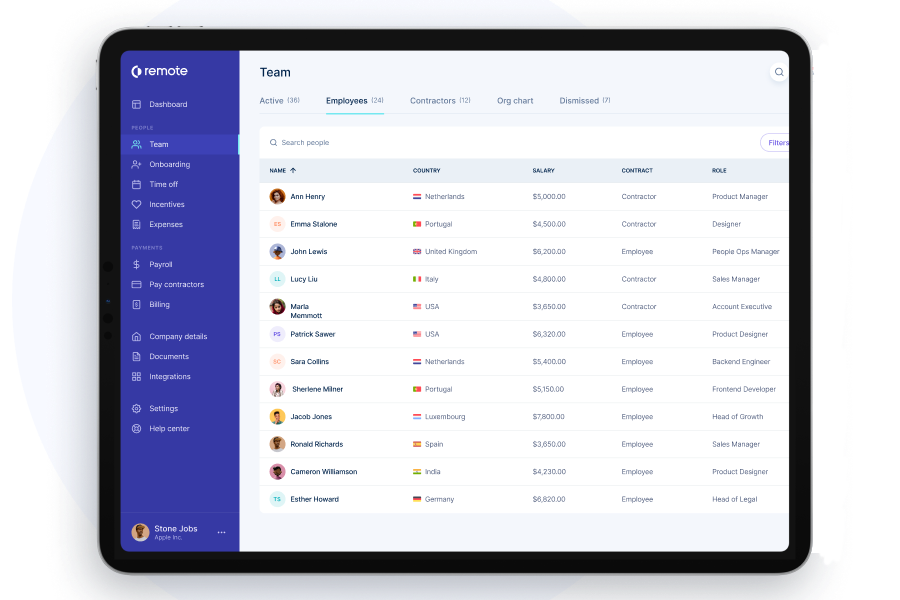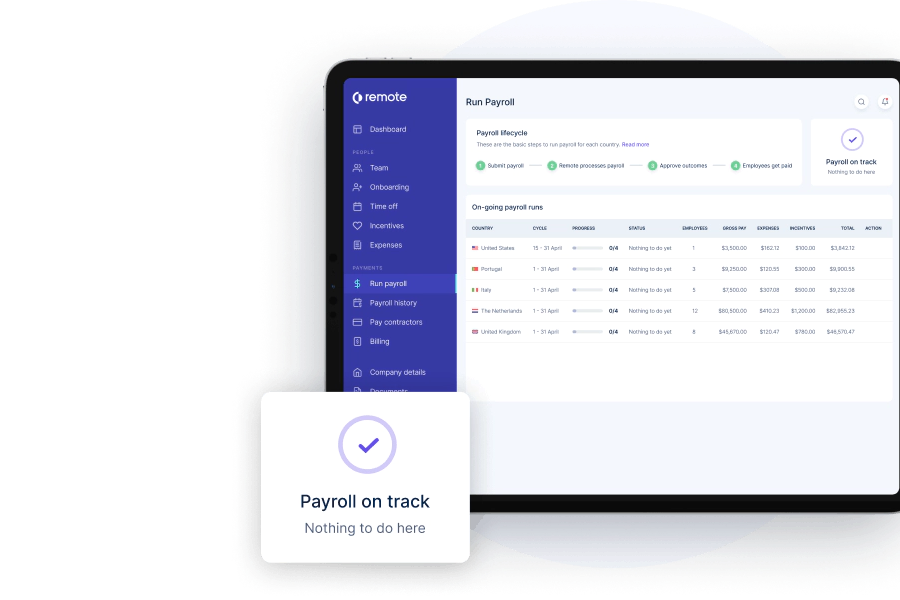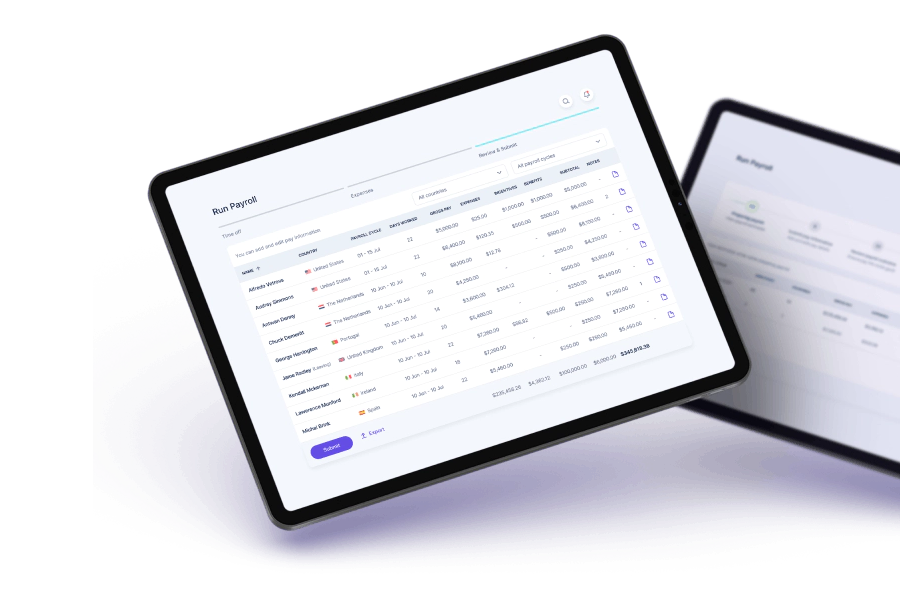
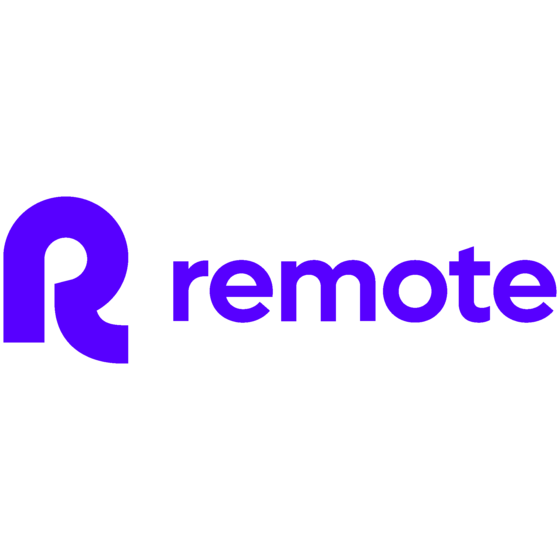
Rippling vs. Remote: Comparison & Expert Reviews for 2025
Rippling offers a streamlined solution for managing your global workforce as an employer of record (EOR), while Remote provides a straightforward approach to handling international employment needs.
The main difference lies in their approach to integration and user experience, which could impact your decision depending on your team's requirements.
In this article, we'll compare the tools and their features, pros and cons, pricing, and more to help you decide which employer of record solution is best for you.
Rippling vs. Remote: An Overview
Rippling
Read Rippling ReviewOpens new windowRemote
Visit RemoteOpens new windowWhy Trust Our Software Reviews
Rippling vs. Remote Pricing Comparison
| Rippling | Remote | |
|---|---|---|
| Free Trial | Free demo available | Free trial available |
| Pricing | From $8/user/month (billed annually) | From $29/user/month |
Get free help from our project management software advisors to find your match.
Get Expert AdviceOpens new windowRippling vs. Remote Pricing & Hidden Costs
Rippling’s pricing operates on a modular basis, allowing you to pay for the specific services you need, but be aware of potential add-on costs for extra features.
Conversely, Remote’s pricing is typically more straightforward, often offering a flat-rate fee with fewer surprises, though it's crucial to check for any additional charges for specific services.
To choose the right tool for your team, analyze your specific needs and usage patterns, and consider requesting a detailed breakdown from vendors to ensure you understand what you're paying for.
Rippling vs. Remote Feature Comparison
With Rippling’s automation capabilities, you can efficiently manage complex HR tasks, making it perfect for medium to large enterprises with distributed teams.
Remote’s global payroll management is also great for businesses seeking to expand internationally while ensuring compliance with local labor laws.
While Rippling excels in automation and integration, Remote offers a user-friendly platform that streamlines the management of a global workforce.
| Rippling | Remote | |
|---|---|---|
| 2-Factor Authentication | ||
| 360 Degree Feedback | ||
| API | ||
| Application Tracking | ||
| Attendance Tracking | ||
| Batch Permissions & Access | ||
| Compliance Tracking | ||
| Contract Management | ||
| Dashboard | ||
| Data Export | ||
| Data Import | ||
| Data Visualization | ||
| Database Search | ||
| Document Management | ||
| Employee Database | ||
| Employee Engagement | ||
| Employee Incentive Management | ||
| Employee Onboarding | ||
| Employee Training | ||
| Expense Tracking | ||
| External Integrations | ||
| Feedback Management | ||
| HRIS Integration | ||
| Mobile App | ||
| Multi-Currency | ||
| Multi-User | ||
| Notifications | ||
| Password & Access Management | ||
| Payroll | ||
| Performance Appraisal | ||
| Report & Compliance | ||
| Risk Assessment | ||
| Scheduling | ||
| Tax Management | ||
| Time Management | ||
| Timesheets | ||
| Travel Management | ||
| Vacation & Absence Calendar |
Get free help from our project management software advisors to find your match.
Get Expert AdviceOpens new windowRippling vs. Remote Integrations
| Integration | Rippling | Remote |
| QuickBooks | ✅ | ✅ |
| Slack | ✅ | ❌ |
| Salesforce | ✅ | ✅ |
| Microsoft 365 | ✅ | ✅ |
| G Suite | ✅ | ✅ |
| Okta | ✅ | ❌ |
| BambooHR | ✅ | ❌ |
| Xero | ❌ | ✅ |
| API | ✅ | ✅ |
| Zapier | ✅ | ✅ |
Using Rippling's integration with Slack, you can streamline communication and automate HR notifications, which is valuable for teams that rely heavily on instant messaging.
Alternatively, Remote's integration with Xero is ideal for businesses that require seamless accounting and payroll management, providing a more straightforward approach to financial oversight.
While Rippling excels in communication integration, Remote provides robust financial management solutions.
Rippling vs. Remote Security, Compliance & Reliability
| Factor | Rippling | Remote |
| Data Privacy | Uses advanced encryption methods to protect sensitive employee data, ensuring compliance with GDPR and CCPA standards. | Prioritizes data privacy with encryption protocols and is fully GDPR compliant, supporting businesses in handling global data. |
| Regulatory Compliance | Offers automated compliance tracking for U.S. laws, with limited international compliance support. | Ensures compliance with global labor laws, providing tools to manage employment regulations across multiple countries. |
| Encryption | Employs industry-standard encryption to secure data both in transit and at rest, enhancing overall system security. | Uses strong encryption techniques to protect data, ensuring it remains secure during transfers and storage. |
Rippling and Remote both offer strong security and compliance measures, but Remote is more robust for international compliance needs.
To choose the right vendor, focus on evaluating the specific legal requirements your business faces and ensure the platform you select can efficiently handle those complexities.
Rippling vs. Remote Ease of Use
| Factor | Rippling | Remote |
| User Interface | Features an intuitive user interface that seamlessly integrates HR, IT, and finance, making navigation easy, although it can be overwhelming initially. | Offers a clean and simple interface that is easy to use for managing global teams and processing payroll with minimal hassle. |
| Onboarding Process | Provides a detailed onboarding experience with automated workflows, though it may require some initial setup time. | Simplifies onboarding with straightforward steps, making it quick to get started, especially for international hires. |
| Support | Support can be slow for complex issues, which can impact the user experience during critical times. | Offers responsive customer support, which helps resolve queries quickly and enhances the user experience. |
Rippling's extensive features can be daunting, but once mastered, they provide robust capabilities for complex HR needs.
In comparison, Remote is easier to use from the start, especially for international operations, but might lack some of the deeper functionalities that Rippling offers.
Rippling vs Remote: Pros & Cons
Rippling
- Users find the interface intuitive and easy to navigate.
- The platform is highly scalable, making it ideal for growing businesses.
- Rippling automates administrative tasks, saving your team time and reducing errors.
- Rippling does not offer dedicated account managers.
- Customer support can be slow with complex issues.
- New users face a steep learning curve due to its extensive functionality.
Remote
- Your team benefits from excellent global payroll management.
- It simplifies compliance with local labor laws and regulations.
- You can easily manage remote teams with its user-friendly platform.
- Your team may experience a learning curve during initial setup.
- Some users report occasional delays in customer support response.
- You might find limited customization options for specific needs.
Best Use Cases for Rippling and Remote
Rippling
- Tech Startups Rippling helps tech startups automate HR and IT tasks, saving time for innovation.
- Mid-Sized Enterprises The platform scales well, handling growing teams and complex operations efficiently.
- HR Departments Rippling centralizes HR functions, simplifying payroll and benefits management.
- IT Teams It manages devices and access, making IT operations smoother and more secure.
- Finance Departments Rippling integrates payroll with other financial systems, streamlining financial workflows.
- Remote Teams The platform supports remote work by centralizing tasks and communications.
Remote
- Tech Startups Remote simplifies global hiring, allowing your startup to scale without worrying about compliance.
- Expanding Companies You can enter new markets seamlessly with Remote’s global payroll and legal expertise.
- HR Departments Your team will streamline processes with Remote’s easy-to-use platform and compliance tools.
- Remote Teams Remote helps you manage payroll and compliance efficiently across different countries.
- Consulting Firms You can focus on client projects while Remote handles complex international HR tasks.
- E-commerce Businesses Remote supports your global sales operations by managing international employee compliance.
Get free help from our project management software advisors to find your match.
Get Expert AdviceOpens new windowWho Should Use Rippling, and Who Should Use Remote?
In my opinion, Rippling is best suited for larger organizations with complex HR needs that require integrated IT and finance capabilities, especially if your team is tech-savvy. Remote, on the other hand, is ideal for businesses looking to expand internationally with ease, focusing on global compliance and straightforward payroll management.
If your team values simplicity and quick onboarding, Remote might be the ideal solution. However, if you need a more comprehensive solution that can handle multiple aspects of your business, Rippling could be a better choice.
Differences Between Rippling and Remote
| Rippling | Remote | |
|---|---|---|
| Automation | Excels in automation, streamlining complex HR tasks for larger enterprises. | Focuses on simplifying global payroll and compliance without heavy automation. |
| Compliance | More U.S.-centric, but it offers some international compliance support. | Specializes in global compliance, making it suitable for international operations. |
| Integrations | Integrates with a wide range of tools like Slack and Salesforce for enhanced productivity. | Offers essential integrations, with a focus on Xero and global payroll tools. |
| Pricing | Offers a modular pricing structure, letting you pay for the specific services you need. | Generally provides a flat-rate fee, simplifying budgeting for international teams. |
| User Interface | Interface integrates HR, IT, and finance, which can be powerful but complex. | Features a clean and straightforward user interface, ideal for quick global team management. |
| Read Rippling ReviewOpens new window | Visit RemoteOpens new window |
Similarities Between Rippling and Remote
| Customer Support | Both companies offer customer support to help you navigate their systems, with Remote being known for quicker response times. |
|---|---|
| Data Security | The platforms prioritize data security, using encryption to protect sensitive information and ensure your team's data is safe and compliant. |
| Payroll | Rippling and Remote offer global payroll solutions, ensuring your team receives accurate and timely payments, with Rippling providing additional automation options. |
| Scalability | Both solutions are scalable, allowing your business to grow without needing to switch platforms, although Rippling is often seen as better suited for larger enterprises. |
| User-Friendly Design | They both provide user-friendly interfaces, though Rippling integrates more functionalities, while Remote keeps it simple for ease of use. |
| Read Rippling ReviewOpens new window Visit RemoteOpens new window | |


